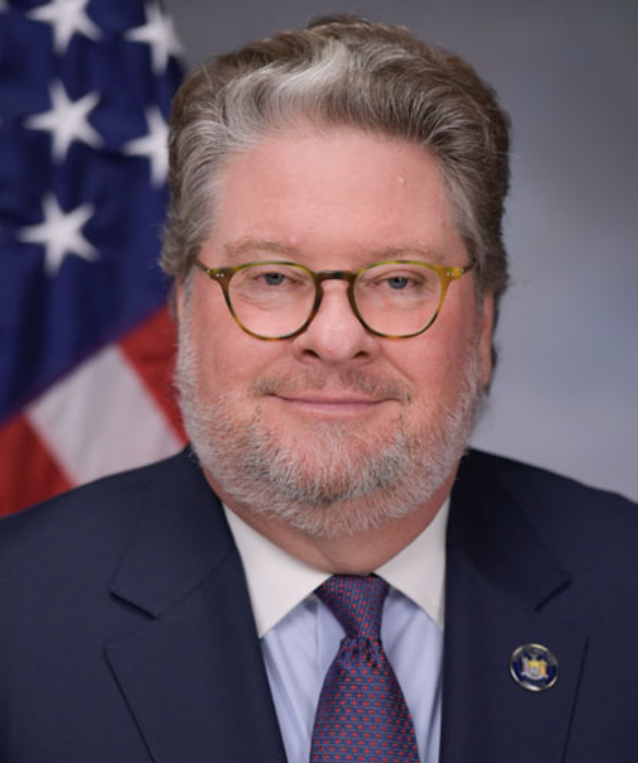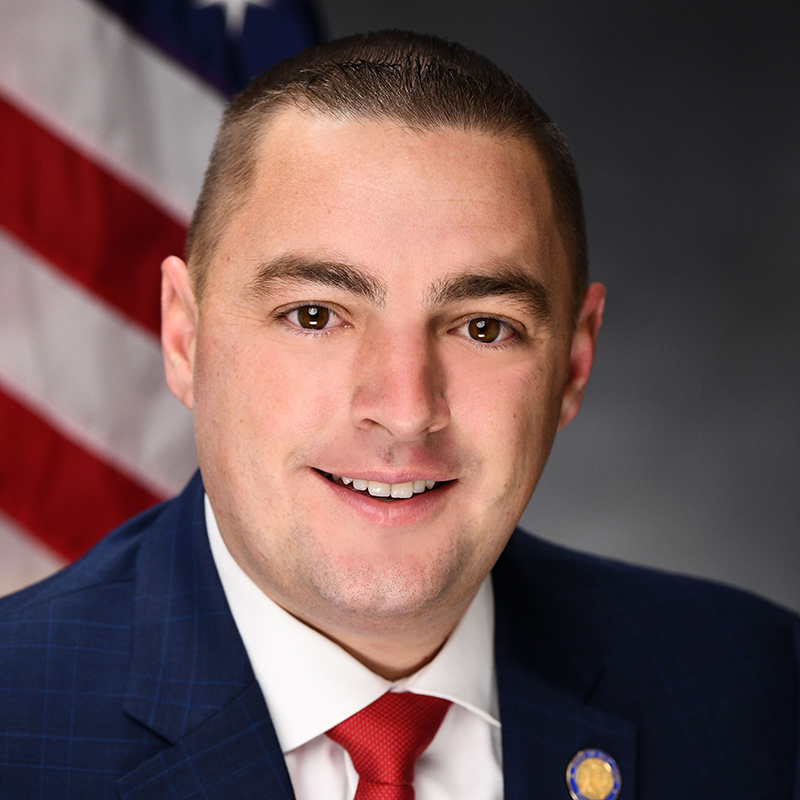S T A T E O F N E W Y O R K
________________________________________________________________________
5116--C
Cal. No. 979
2021-2022 Regular Sessions
I N S E N A T E
February 24, 2021
___________
Introduced by Sens. HARCKHAM, HOYLMAN, KAVANAGH, LIU, MAY, REICHLIN-MEL-
NICK, RYAN, SERRANO -- read twice and ordered printed, and when print-
ed to be committed to the Committee on Environmental Conservation --
committee discharged, bill amended, ordered reprinted as amended and
recommitted to said committee -- reported favorably from said commit-
tee, ordered to first report, amended on first report, ordered to a
second report and ordered reprinted, retaining its place in the order
of second report -- reported favorably from said committee, second
report, ordered to a third reading, amended and ordered reprinted,
retaining its place in the order of third reading
AN ACT to amend the environmental conservation law, in relation to
freshwater wetlands; and to repeal certain provisions of such law
relating thereto
THE PEOPLE OF THE STATE OF NEW YORK, REPRESENTED IN SENATE AND ASSEM-
BLY, DO ENACT AS FOLLOWS:
Section 1. Subdivisions 2, 3 and 7 of section 24-0105 of the environ-
mental conservation law, as added by chapter 614 of the laws of 1975,
subdivision 7 as renumbered by chapter 654 of the laws of 1977, are
amended to read as follows:
2. Considerable acreage of freshwater wetlands in the state of New
York has been lost, despoiled or impaired by unregulated draining,
dredging, filling, excavating, building, pollution or other [acts]
ACTIVITIES inconsistent with the natural uses of such areas. [Other
freshwater] FRESHWATER wetlands are in jeopardy of being lost, despoiled
or impaired by such [unrelated acts] ACTIVITIES AND BECAUSE OF THE
RECENT CURTAILMENT OF FEDERAL WETLAND PROTECTIONS.
3. Recurrent flooding aggravated or caused by the loss of freshwater
wetlands has serious effects upon natural ecosystems. THE INCREASING
SEVERITY AND DURATION OF STORM-RELATED FLOODING DUE TO CLIMATE CHANGE,
WHICH HAS CAUSED BILLIONS OF DOLLARS OF PROPERTY DAMAGE IN THE STATE,
EXPLANATION--Matter in ITALICS (underscored) is new; matter in brackets
[ ] is old law to be omitted.
LBD09969-04-1
S. 5116--C 2
MAKES PROTECTION OF ALL FRESHWATER WETLANDS IN THE STATE OF VITAL IMPOR-
TANCE.
7. Any loss of freshwater wetlands deprives the people of the state of
some or all of the many and multiple benefits to be derived from
wetlands, to wit:
(a) flood and storm control by the hydrologic absorption and storage
capacity of freshwater wetlands;
(b) wildlife habitat by providing breeding, nesting and feeding
grounds and cover for many forms of wildlife, wildfowl and shorebirds,
including migratory wildfowl and rare, ENDANGERED OR THREATENED species
[such as the bald eagle and osprey];
(c) protection of subsurface water resources and provision for valu-
able watersheds and recharging ground water supplies;
(d) recreation by providing areas for hunting, fishing, boating,
hiking, bird watching, photography, camping and other uses;
(e) pollution treatment by serving as biological and chemical oxida-
tion basins;
(f) erosion control by serving as sedimentation areas and filtering
basins, absorbing silt and organic matter and protecting channels and
harbors;
(g) education and scientific research by providing readily accessible
outdoor bio-physical laboratories, living classrooms and vast training
and education resources; [and]
(h) open space and aesthetic appreciation by providing often the only
remaining open areas along crowded river fronts and coastal Great Lakes
regions; [and]
(i) sources of nutrients in freshwater food cycles and nursery grounds
and sanctuaries for freshwater fish[.];
(J) PRESERVATION OF PLANT SPECIES THAT ARE RARE, ENDANGERED OR THREAT-
ENED, OR EXPLOITABLY VULNERABLE AS DEFINED IN SECTION 9-1503 OF THIS
CHAPTER; AND
(K) PRESERVATION OF COMMUNITIES OF PLANTS AND ANIMALS THAT ARE DEEMED
BY THE COMMISSIONER TO BE RARE IN THE STATE OR IN A REGION OF THE STATE.
§ 2. The opening paragraph and paragraphs (c) and (d) of subdivision
1, and subdivisions 2, 3 and 8 of section 24-0107 of the environmental
conservation law, as amended by chapter 654 of the laws of 1977, are
amended and two new subdivisions 9 and 10 are added to read as follows:
"Freshwater wetlands" means lands and waters of the state [as shown on
the freshwater wetlands map] THAT HAVE AN AREA OF AT LEAST TWELVE AND
FOUR-TENTHS ACRES OR, IF LESS THAN TWELVE AND FOUR-TENTHS ACRES IN SIZE,
ARE OF UNUSUAL IMPORTANCE AND which contain any or all of the following:
(c) lands and waters substantially enclosed by aquatic or semi-aquatic
vegetation as set forth in paragraph (a) OF THIS SUBDIVISION or by dead
vegetation as set forth in paragraph (b) OF THIS SUBDIVISION, the regu-
lation of which is necessary to protect and preserve the aquatic and
semi-aquatic vegetation; and
(d) the waters overlying the areas set forth in PARAGRAPHS (a) and (b)
OF THIS SUBDIVISION and the lands underlying PARAGRAPH (c) OF THIS
SUBDIVISION.
2. "Freshwater wetlands map" shall mean a map promulgated by the
department pursuant to section 24-0301 of this article on which are
indicated the boundaries of any freshwater wetlands. FRESHWATER WETLAND
MAPS WILL SERVE THE PURPOSE OF EDUCATING THE PUBLIC ON THE APPROXIMATE
LOCATION OF WETLANDS, ARE FOR EDUCATIONAL PURPOSES ONLY, AND ARE NOT
CONTROLLING FOR PURPOSES OF DETERMINING IF A WETLANDS PERMIT IS REQUIRED
PURSUANT TO SECTION 24-0701 OF THIS ARTICLE.
S. 5116--C 3
3. "Boundaries of a freshwater wetland" shall mean the outer limit of
the vegetation specified in paragraphs (a) and (b) of subdivision one of
THIS section [24-0107] and of the lands and waters specified in para-
graph (c) of such subdivision.
8. "Pollution" shall mean the presence in the environment of [man-in-
duced] HUMAN-INDUCED conditions or contaminants in quantities or charac-
teristics which are or may be injurious to human, plant or wildlife, or
other animal life or to property.
9. "UNUSUAL IMPORTANCE" SHALL MEAN A FRESHWATER WETLAND, REGARDLESS OF
SIZE, THAT POSSESSES ONE OR MORE OF THE FOLLOWING CHARACTERISTICS AS
DETERMINED BY THE DEPARTMENT:
(A) IT IS LOCATED IN AN AREA DESIGNATED AS A SPECIAL FLOOD HAZARD AREA
ON THE MOST CURRENT FEDERAL EMERGENCY MANAGEMENT AGENCY FLOOD INSURANCE
RATE MAP THAT HAS EXPERIENCED SIGNIFICANT FLOODING IN THE PAST;
(B) IT CONTAINS OCCUPIED HABITAT OR HABITAT FOR AN ESSENTIAL BEHAVIOR,
AS CONFIRMED BY THE DEPARTMENT, OF AN ENDANGERED OR THREATENED SPECIES
OR A SPECIES OF SPECIAL CONCERN AS DEFINED UNDER SECTION 11-0535 OF THIS
CHAPTER AND/OR LISTED AS A SPECIES OF GREATEST CONSERVATION NEED IN NEW
YORK'S WILDLIFE ACTION PLAN;
(C) IT IS CLASSIFIED BY THE DEPARTMENT AS A CLASS I WETLAND;
(D) IT IS CLASSIFIED BY THE DEPARTMENT AS A CLASS II WETLAND AND THE
DEPARTMENT DETERMINES BASED ON CRITERIA ESTABLISHED BY REGULATION THAT
ITS WETLAND FUNCTIONS AND VALUES ARE OF LOCAL OR REGIONAL SIGNIFICANCE;
OR
(E) IT WAS PREVIOUSLY CLASSIFIED AND MAPPED BY THE DEPARTMENT AS A
WETLAND OF UNUSUAL LOCAL IMPORTANCE.
10. "DELINEATION" SHALL MEAN A PRECISE DESCRIPTION OF A REGULATED
FRESHWATER WETLAND AS DEFINED IN SUBDIVISIONS ONE AND THREE OF THIS
SECTION, INCLUDING THE REGULATED ADJACENT AREA WITH SUFFICIENT SCALE AND
CLARITY TO PERMIT READY IDENTIFICATION.
§ 3. Subdivisions 1, 2, 3, 4 and 5 of section 24-0301 of the environ-
mental conservation law are REPEALED.
§ 4. Subdivisions 6, 7 and 8 of section 24-0301 of the environmental
conservation law, subdivision 6 as amended by chapter 16 of the laws of
2010 and subdivision 7 as amended and subdivision 8 as added by chapter
654 of the laws of 1977, are amended to read as follows:
[6.] 1. Except as provided in subdivision [eight] THREE of this
section, the commissioner shall supervise the maintenance of [such boun-
dary] FRESHWATER WETLANDS maps, which shall be available to the public
[for inspection and examination at the regional office of the department
in which the wetlands are wholly or partly located and in the office of
the clerk of each county in which each such wetland or a portion thereof
is located] ON THE DEPARTMENT'S WEBSITE. The commissioner may, UPON
NOTICE IN A FORM AND MANNER TO BE DETERMINED BY THE DEPARTMENT TO THE
PROPERTY OWNER OR OWNERS AFFECTED, readjust the map [thereafter to clar-
ify the boundaries of the wetlands, to correct any errors on the map, to
effect any additions, deletions or technical changes on the map, and to
reflect changes as have occurred as a result of the granting of permits
pursuant to section 24-0703 of this article, or natural changes which
may have occurred through erosion, accretion, or otherwise. Notice of
such readjustment shall be given in the same manner as set forth in
subdivision five of this section for the promulgation of final freshwa-
ter wetlands maps. In addition, at the time notice is provided pursuant
to subdivision five of this section, the commissioner shall update any
digital image of the map posted on the department's website to reflect
such readjustment] AT ANY TIME PRIOR TO THE FILING OF THE DELINEATION OF
S. 5116--C 4
A FRESHWATER WETLAND BOUNDARY TO MORE ACCURATELY DEPICT THE APPROXIMATE
LOCATION OF WETLANDS.
[7.] 2. Except as provided in subdivision [eight] THREE of this
section, the commissioner may, upon his OR HER own initiative, and
shall, upon a written request by a landowner whose land or a portion
thereof may be included within a wetland, or upon the written request of
another person or persons or an official body whose interests are shown
to be affected, cause to be delineated [more precisely] the boundary
line or lines of a freshwater wetland or a portion thereof AND THE REGU-
LATED FRESHWATER WETLAND ADJACENT AREA AS SET FORTH IN SUBDIVISION TWO
OF SECTION 24-0701 OF THIS ARTICLE. [Such more precise delineation of a
freshwater wetland boundary line or lines shall be of appropriate scale
and sufficient clarity to permit the ready identification of individual
buildings and of other major man-made structures or facilities or
significant geographical features with respect to the boundary of any
freshwater wetland.] The commissioner shall [undertake to delineate the
boundary of a particular wetland or wetlands, or a particular part of
the boundary thereof only upon a showing by the applicant therefor of
good cause for such more precise delineation and the establishment of
such more precise line] FILE ANY DELINEATION OF A WETLAND BOUNDARY MADE
OR ACCEPTED BY THE DEPARTMENT AND SUCH DELINEATION SHALL BE EFFECTIVE
AND BINDING FOR A PERIOD OF FIVE YEARS FROM THE DATE SUCH DELINEATION IS
FILED. THE COMMISSIONER SHALL SUPERVISE THE FILING AND MAINTENANCE OF
DELINEATIONS, WHICH SHALL BE MADE AVAILABLE TO THE PUBLIC ON THE DEPART-
MENT'S WEBSITE.
[8.] 3. The supervision of the maintenance of any freshwater wetlands
map or portion thereof applicable to wetlands within the Adirondack
park, the readjustment and precise delineation of wetland boundary lines
and the other functions and duties ascribed to the commissioner by
subdivisions [six and seven] ONE AND TWO of this section shall be
performed by the Adirondack park agency, which shall make such maps AND
DELINEATIONS available [for public inspection and examination at its
headquarters] ON THE AGENCY'S WEBSITE.
§ 5. Subdivisions 1, 2 and 4 of section 24-0701 of the environmental
conservation law, subdivisions 1 and 2 as amended by chapter 654 of the
laws of 1977 and subdivision 4 as amended by chapter 697 of the laws of
1979, are amended to read as follows:
1. [After issuance of the official freshwater wetlands map of the
state, or of any selected section or region thereof, any] ANY person
desiring to conduct on freshwater wetlands [as so designated thereon] OR
ON THE REGULATED FRESHWATER WETLAND ADJACENT AREA AS SET FORTH IN SUBDI-
VISION TWO OF THIS SECTION any of the regulated activities set forth in
subdivision two of this section must obtain a permit as provided in this
title.
2. Activities subject to regulation shall include any form of drain-
ing, dredging, excavation, removal of soil, mud, sand, shells, gravel or
other aggregate from any freshwater wetland, either directly or indi-
rectly; and any form of dumping, filling, or depositing of any soil,
stones, sand, gravel, mud, rubbish or fill of any kind, either directly
or indirectly; erecting any structures, roads, the driving of pilings,
or placing of any other obstructions whether or not changing the ebb and
flow of the water; any form of pollution, including but not limited to,
installing a septic tank, running a sewer outfall, discharging sewage
treatment effluent or other liquid wastes into or so as to drain into a
freshwater wetland; and any other activity which substantially impairs
any of the several functions served by freshwater wetlands or the bene-
S. 5116--C 5
fits derived therefrom which are set forth in section 24-0105 of this
article. These activities are subject to regulation whether or not they
occur upon the wetland itself, if they impinge upon or otherwise
substantially affect the wetlands and are located: (A) not more than one
hundred feet from the boundary of [such] A wetland: (I) THAT HAS AN AREA
OF AT LEAST TWELVE AND FOUR-TENTHS ACRES; (II) THAT IS A WETLAND OF
UNUSUAL IMPORTANCE AND HAS AN AREA OF AT LEAST TEN ACRES; (III) THAT IS
CLASSIFIED AS A CLASS I WETLAND BY THE DEPARTMENT AND HAS AN AREA OF AT
LEAST FIVE ACRES; OR (IV) THAT WAS PREVIOUSLY CLASSIFIED AND MAPPED BY
THE DEPARTMENT AS A WETLAND OF UNUSUAL LOCAL IMPORTANCE; (B) NOT MORE
THAN FIFTY FEET FROM THE BOUNDARY OF A WETLAND IF IT IS A WETLAND OF
UNUSUAL IMPORTANCE AND HAS AN AREA OF AT LEAST FIVE ACRES AND LESS THAN
TEN ACRES; AND (C) NOT MORE THAN TWENTY-FIVE FEET FROM THE BOUNDARY OF A
WETLAND IF IT IS A WETLAND OF UNUSUAL IMPORTANCE AND HAS AN AREA OF LESS
THAN FIVE ACRES. Provided, that a greater distance from any such
wetland may be regulated pursuant to this article by the appropriate
local government or by the department, whichever has jurisdiction over
such wetland, where necessary to protect and preserve the wetland.
4. [The] ON LANDS IN ACTIVE AGRICULTURAL OR SILVICULTURAL USE, THE
activities of farmers and other landowners in grazing and watering live-
stock, making reasonable use of water resources, harvesting natural
products of the wetlands, selectively cutting timber, draining land or
wetlands for growing agricultural products and otherwise engaging in the
use of wetlands or other land for growing agricultural products shall be
excluded from regulated activities and shall not require a permit under
subdivision one [hereof] OF THIS SECTION, except that structures not
required for enhancement or maintenance of the agricultural productivity
of the land and any filling activities shall not be excluded hereunder,
and provided that the use of land [designated as a freshwater wetland
upon the freshwater wetlands map at the effective date thereof] THAT
MEETS THE DEFINITION OF A FRESHWATER WETLAND IN SECTION 24-0107 OF THIS
ARTICLE for uses other than those referred to in this subdivision shall
be subject to the provisions of this article.
§ 6. Subdivision 5 of section 24-0703 of the environmental conserva-
tion law, as amended by section 38 of part D of chapter 60 of the laws
of 2012, is amended to read as follows:
5. [Prior to the promulgation of the final freshwater wetlands map in
a particular area and the implementation of a freshwater wetlands
protection law or ordinance, no person shall conduct, or cause to be
conducted, any activity for which a permit is required under section
24-0701 of this title on any freshwater wetland unless he has obtained a
permit from the commissioner under this section.] Any person may inquire
of the department as to whether or not a given parcel of land [will be
designated] INCLUDES a freshwater wetland subject to regulation OR A
REGULATED FRESHWATER WETLAND ADJACENT AREA AND WHETHER A PERMIT UNDER
SUBDIVISION ONE OF THIS SECTION IS REQUIRED FOR A PROPOSED ACTIVITY. The
department shall give a definite answer in writing within [thirty] SIXTY
days of such request as to [whether] THE STATUS OF such parcel [will or
will not be so designated] AND WHETHER A PERMIT IS REQUIRED FOR THE
PROPOSED ACTIVITY. Provided that, in the event that weather or ground
conditions prevent the department from making a determination within
[thirty] SIXTY days, it may extend such period until a determination can
be made. Such answer in the affirmative shall be reviewable; such an
answer in the negative shall be a complete defense to the enforcement of
this article as to such parcel of land FOR A PERIOD OF FIVE YEARS FROM
THE DATE THE DEPARTMENT ISSUES THE NEGATIVE ANSWER. [The commissioner
S. 5116--C 6
may by regulation adopted after public hearing exempt categories or
classes of wetlands or individual wetlands which he determines not to be
critical to the furtherance of the policies and purposes of this arti-
cle.]
§ 7. Subdivision 1 of section 24-0901 of the environmental conserva-
tion law, as added by chapter 614 of the laws of 1975, is amended to
read as follows:
1. [Upon completion of the freshwater wetlands map, the] THE commis-
sioner shall confer with local government officials in each region in
which the inventory has been conducted to establish a program for the
protection of the freshwater wetlands of the state.
§ 8. Subdivisions 1 and 5 of section 24-0903 of the environmental
conservation law, as added by chapter 614 of the laws of 1975, are
amended to read as follows:
1. [Upon completion of the freshwater wetlands map of the state, or of
any selected section or region thereof, the] THE commissioner shall
[proceed to] classify freshwater wetlands so designated thereon accord-
ing to their most appropriate uses, in light of the values set forth in
section 24-0105 of this article and the present conditions of such
wetlands. The commissioner shall determine what uses of such wetlands
are most compatible with the foregoing and shall prepare minimum land
use regulations to permit only such compatible uses. The classifications
may cover freshwater wetlands in more than one governmental subdivision.
Permits pursuant to section 24-0701 of this article are required whether
or not a classification has been promulgated.
5. Prior to the adoption of any land use regulations governing fresh-
water wetlands, the commissioner shall hold a public hearing thereon in
the area in which the affected freshwater wetlands are located, and give
fifteen days prior notice thereof by POSTING ON THE DEPARTMENT'S WEBSITE
OR BY publication at least once in a newspaper having general circu-
lation in the area of the local government involved. The commissioner
shall promulgate the regulations within thirty days of such hearing and
POST SUCH ORDER ON THE DEPARTMENT'S WEBSITE OR publish such order [at
least once] in a newspaper having general circulation in the area of the
local government affected and make such plan available for public
inspection and review; such order shall not take effect until thirty
days after the filing thereof with the clerk of the county in which such
wetland is located.
§ 9. Paragraph (c) of subdivision 8 of section 70-0117 of the environ-
mental conservation law, as added by section 1 of part AAA of chapter 59
of the laws of 2009, is amended to read as follows:
(c) [All fees] FEES collected pursuant to [this] PARAGRAPH (A) OF THIS
subdivision shall be deposited [into] TO THE CREDIT OF the [environ-
mental protection] CONSERVATION fund pursuant to section [ninety-two-s]
EIGHTY-THREE of the state finance law. FEES COLLECTED PURSUANT TO PARA-
GRAPH (B) OF THIS SUBDIVISION SHALL BE DEPOSITED TO THE CREDIT OF THE
MARINE RESOURCES ACCOUNT OF THE CONSERVATION FUND.
(D) APPLICATION FEES REQUIRED PURSUANT TO THIS SUBDIVISION WILL NOT BE
REQUIRED FOR ANY STATE DEPARTMENT.
§ 10. Subdivisions 1 and 2 of section 71-2303 of the environmental
conservation law, as amended by chapter 99 of the laws of 2010, are
amended to read as follows:
1. Administrative sanctions. A. Any person who violates, disobeys or
disregards any provision of article twenty-four, including title five
and section 24-0507 thereof or any rule or regulation, local law or
ordinance, permit or order issued pursuant thereto, shall be liable to
S. 5116--C 7
the people of the state for a civil penalty of not to exceed eleven
thousand dollars for every such violation AND FOR EACH DAY EVERY SUCH
VIOLATION OCCURS, to be assessed, after a hearing or opportunity to be
heard upon due notice and with the rights to specification of the charg-
es and representation by counsel at such hearing, by the commissioner or
local government. Such penalty may be recovered in an action brought by
the attorney general at the request and in the name of the commissioner
or local government in any court of competent jurisdiction. Such civil
penalty may be released or compromised by the commissioner or local
government before the matter has been referred to the attorney general;
and where such matter has been referred to the attorney general, any
such penalty may be released or compromised and any action commenced to
recover the same may be settled and discontinued by the attorney general
with the consent of the commissioner or local government. In addition,
the commissioner or local government shall have power, following a hear-
ing held in conformance with the procedures set forth in section 71-1709
of this article, to direct the violator to cease [his violation of]
VIOLATING the act and to restore the affected freshwater wetland to its
condition prior to the violation, insofar as that is possible within a
reasonable time and under the supervision of the commissioner or local
government. Any such order of the commissioner or local government shall
be enforceable in an action brought by the attorney general at the
request and in the name of the commissioner or local government in any
court of competent jurisdiction. Any civil penalty or order issued by
the commissioner or local government pursuant to this subdivision shall
be reviewable in a proceeding pursuant to article seventy-eight of the
civil practice law and rules.
B. UPON DETERMINING THAT SIGNIFICANT DAMAGE TO THE FUNCTIONS AND BENE-
FITS OF A FRESHWATER WETLAND IS OCCURRING OR IS IMMINENT AS A RESULT OF
ANY VIOLATION OF ARTICLE TWENTY-FOUR OF THIS CHAPTER, INCLUDING BUT NOT
LIMITED TO (I) ACTIVITY TAKING PLACE REQUIRING A PERMIT UNDER ARTICLE
TWENTY-FOUR OF THIS CHAPTER BUT FOR WHICH NO PERMIT HAS BEEN GRANTED OR
(II) FAILURE ON THE PART OF A PERMITTEE TO ADHERE TO PERMIT CONDITIONS,
THE COMMISSIONER OR LOCAL GOVERNMENT SHALL HAVE POWER TO DIRECT THE
VIOLATOR TO CEASE AND DESIST FROM VIOLATING THE ACT. IN SUCH CASES THE
VIOLATOR SHALL BE PROVIDED AN OPPORTUNITY TO BE HEARD WITH TEN DAYS OF
RECEIPT OF THE NOTICE TO CEASE AND DESIST.
2. Criminal sanctions. Any person who violates any provision of arti-
cle twenty-four of this chapter, including any rule or regulation, local
law or ordinance, permit or order issued pursuant thereto, shall, in
addition, for the first offense, be guilty of a violation punishable by
a fine of not less than two thousand nor more than [four] FIVE thousand
dollars; for a second and each subsequent offense he OR SHE shall be
guilty of a misdemeanor punishable by a fine of not less than four thou-
sand nor more than [seven] TEN thousand dollars or a term of imprison-
ment of not less than fifteen days nor more than six months or both.
Instead of these punishments, any offender may be punishable by being
ordered by the court to restore the affected freshwater wetland to its
condition prior to the offense, insofar as that is possible. The court
shall specify a reasonable time for the completion of such restoration,
which shall be effected under the supervision of the commissioner or
local government. Each offense shall be a separate and distinct offense
and, in the case of a continuing offense, each day's continuance thereof
shall be deemed a separate and distinct offense.
S. 5116--C 8
§ 11. Subdivision 1 of section 71-2305 of the environmental conserva-
tion law, as added by chapter 614 of the laws of 1975, is amended to
read as follows:
1. The attorney general, upon his OR HER own initiative or upon
complaint of the commissioner or local government, shall prosecute
persons alleged to have violated [any such order of the commissioner or
local government pursuant to] article twenty-four OF THIS CHAPTER.
§ 12. This act shall take effect immediately, provided, however, that
sections two, three, four, five, six, seven and eight of this act shall
take effect on January 1, 2023.




















